Families don’t just lose space—they lose trust, connection, and sometimes each other.
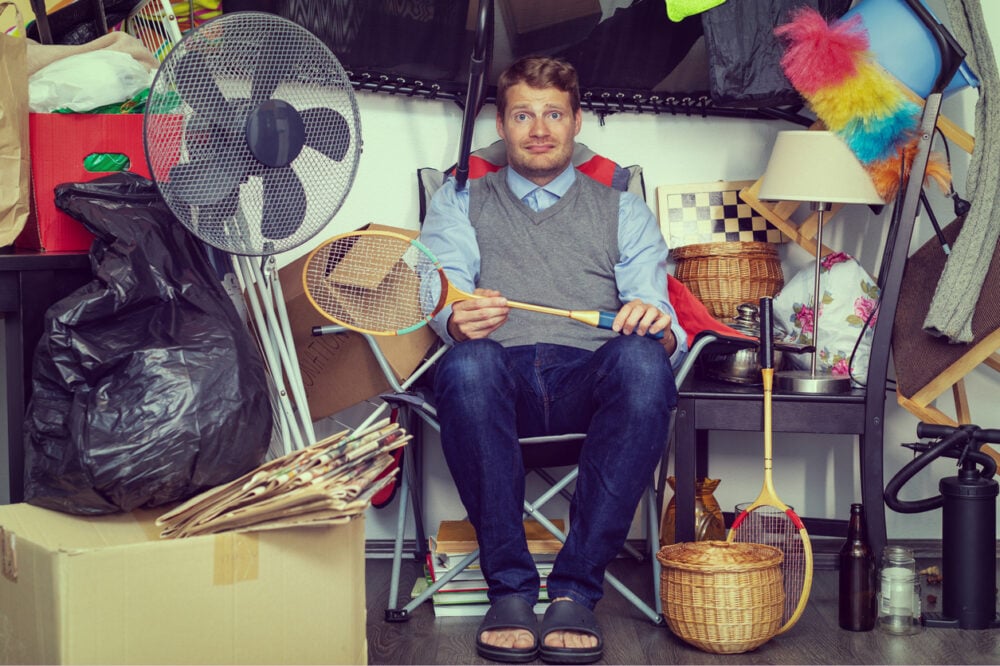
It’s easy to think hoarding is just a personal issue—something one person deals with in their own space. But if you’ve ever had a loved one who hoards, you know it’s not that simple. The piles, the stuff, the inability to let go—it all starts to seep into every part of life, including yours. You can’t just walk away from it when it’s your parent, your sibling, or your partner. What begins as clutter often turns into stress, resentment, and emotional distance. And before long, the entire family is carrying the weight of someone else’s choices.
It doesn’t matter if the hoarding is extreme or only “a little bad”—the consequences ripple out. Everyone feels it, even if no one wants to talk about it. If you’ve been tiptoeing around the issue, you’re not alone. Hoarding doesn’t just fill up rooms—it empties out relationships in ways you don’t always see coming.
1. Family relationships become strained by constant tension and resentment.
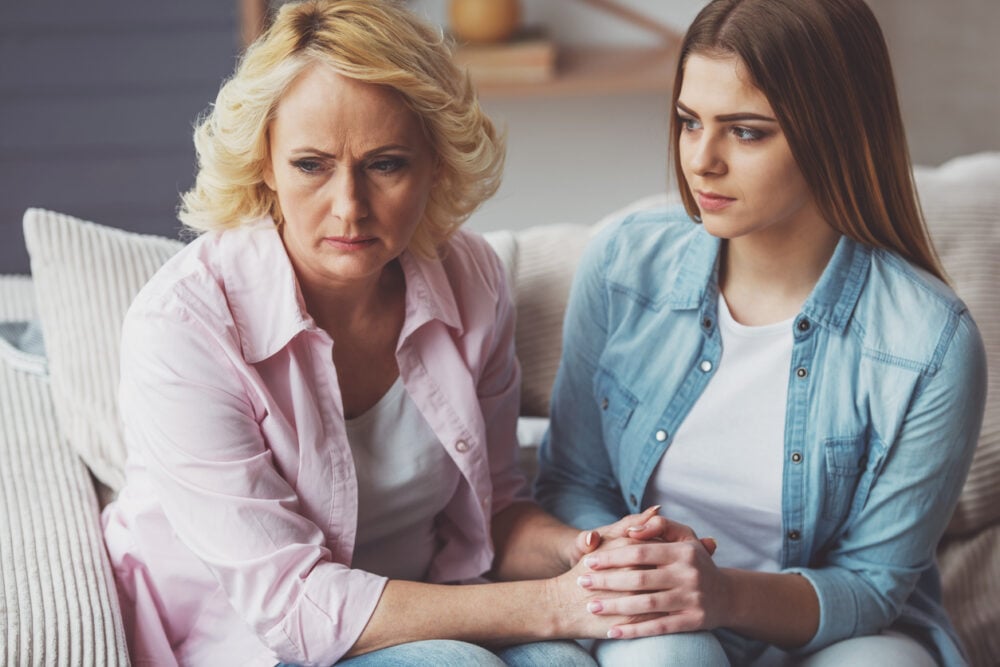
When one person hoards, it changes the emotional atmosphere in the home. Arguments start over space, safety, or even just the inability to sit down and relax, according to research by Anureet K. Sekhon and Luba Leontieva published by the National Library of Medicine. Loved ones often feel ignored, dismissed, or shut out completely. Those little frustrations turn into lasting resentment. Communication breaks down because it’s hard to have a normal conversation when there’s a mountain of clutter in the way—literally and emotionally. Even the most patient family members can only take so much before the stress starts to show.
Instead of feeling like a team, the family ends up walking on eggshells around one person’s behavior, unsure how to help without triggering a defensive reaction. That ongoing tension chips away at connection, and slowly, the relationships start to erode. What could’ve been addressed early on turns into something that quietly divides everyone involved.
2. Emotional burnout sets in for the people trying to “fix” the problem.
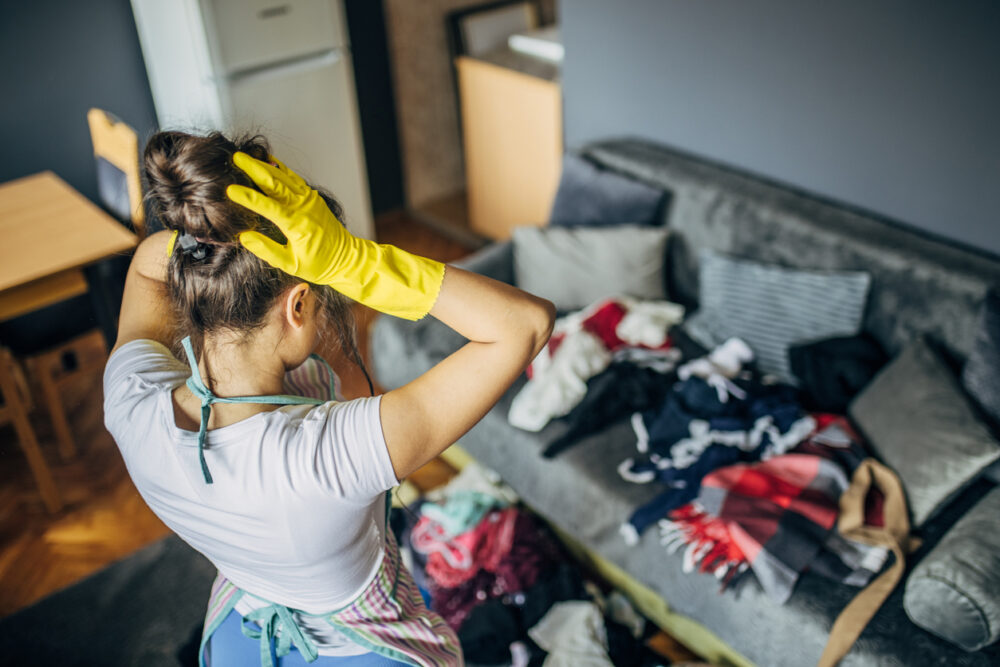
If you’re the one constantly trying to clean, organize, or reason with a hoarder, you know how exhausting it can be. You try to be helpful, only to get pushed back. You offer solutions, and they’re ignored. After a while, it starts to feel like nothing you do makes a difference. That kind of emotional labor takes a real toll, say Margaret F. Bevans, RN, PhD, LCDR and Esther M. Sternberg, MD in their research published by the National Library of Medicine. It’s not just about frustration—it’s about feeling helpless and overwhelmed in a situation that never seems to improve.
You might even start questioning your own reactions, wondering if you’re being too controlling or not doing enough. This emotional fatigue can lead to depression, anxiety, or withdrawal. The energy you spend trying to help often ends up draining you to the point where you stop showing up at all—not because you don’t care, but because you’ve reached your limit.
3. Children grow up feeling embarrassed, isolated, or unsafe.
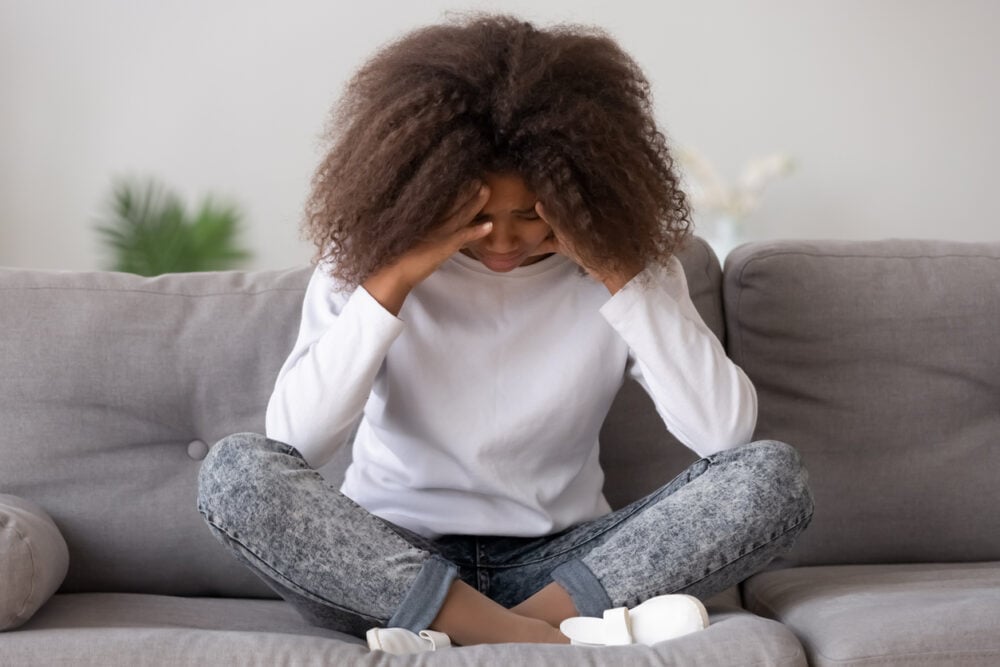
Kids who live in hoarding environments often carry emotional scars long into adulthood. They might be afraid to invite friends over, worried someone will find out what their home looks like. That secrecy breeds shame and isolation. Instead of forming normal childhood memories, they’re trying to hide their reality from the world. In more extreme situations, the clutter creates real safety hazards—blocked exits, tripping risks, mold, pests, or fire dangers. That kind of environment doesn’t feel like home—it feels like survival.
Even if parents are well-meaning, the impact on kids is deep and lasting. They may struggle with trust, emotional regulation, or even develop hoarding tendencies themselves. When one adult hoards, the children in that home often pay the steepest price—quietly, and without anyone noticing until years later.
4. Marriages suffer under the weight of chronic clutter and conflict.

A healthy marriage thrives on shared goals, mutual respect, and emotional intimacy—but hoarding can derail all of that. When one spouse fills the home with stuff, it creates an imbalance. The other partner might feel like their needs don’t matter, or like they’re living in someone else’s chaos. Arguments about space, money, and priorities become constant. Physical intimacy can fade when there’s no comfortable place to relax together. Even simple activities like cooking dinner or having guests over become a source of stress.
Over time, resentment builds. The non-hoarding partner might feel more like a caretaker or adversary than a spouse. And the longer the problem goes unresolved, the harder it becomes to rebuild connection. In some cases, the marriage doesn’t survive—not because there’s a lack of love, but because the hoarding behavior takes up all the emotional space in the relationship.
5. Trust is broken when promises to clean up are never kept.
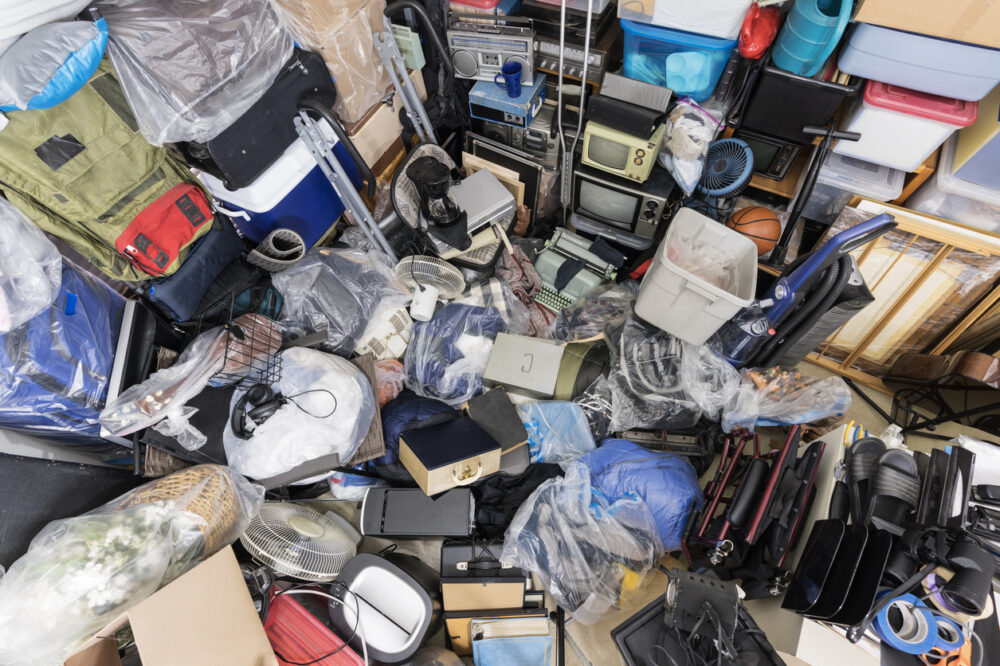
One of the most heartbreaking parts of living with a hoarder is the repeated cycle of hope and disappointment. They might promise to start clearing out a room, call a junk service, or finally get help—and then nothing changes. After a while, you stop believing them. That’s when trust starts to break. Even small things—like saying they’ll sort through one box—begin to feel like empty words. It’s not always about lying; sometimes the hoarder genuinely wants to change but gets overwhelmed.
Still, for those around them, it feels like a betrayal. It creates a sense of emotional distance, because you can’t rely on what they say. Trust erodes not just in the context of the hoarding, but across the whole relationship. When you stop believing someone will follow through, it’s hard to feel close or connected anymore.
6. Health risks increase for everyone living in the home.
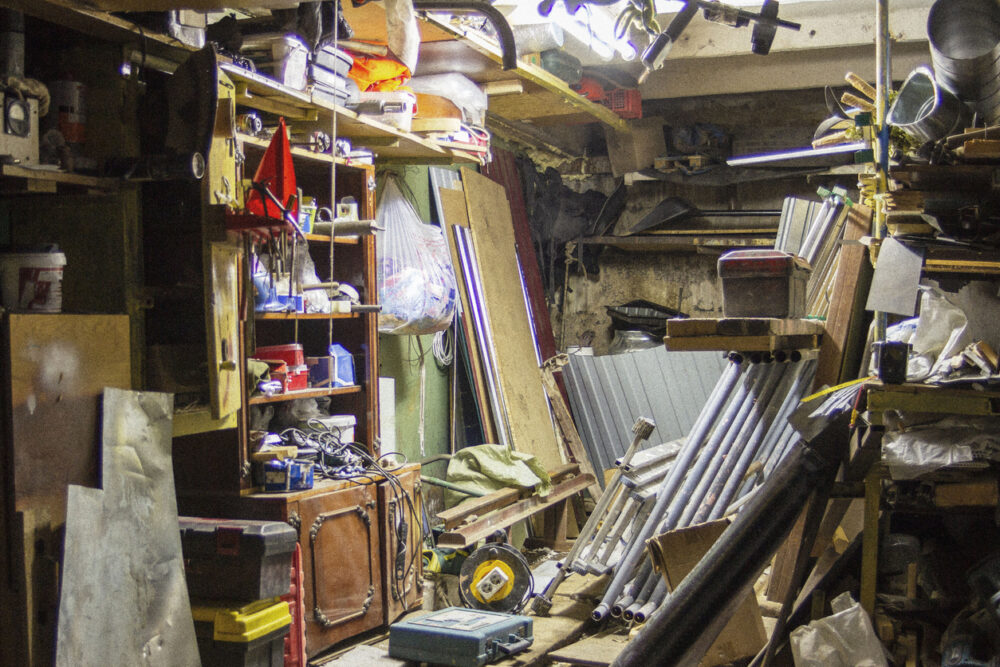
Cluttered homes can become breeding grounds for dust, mold, and pests, especially when items are piled up and rarely moved. If food is hoarded too, expired or spoiled items can attract insects or rodents. Breathing in poor air quality can trigger allergies, asthma, and other respiratory issues. There’s also the physical danger—stacks of belongings can fall, exits may be blocked, and navigating narrow paths increases the risk of falls or injuries. For older adults or children, these hazards are even more serious. It’s not just uncomfortable—it’s unsafe.
Medical professionals and emergency responders often can’t do their jobs properly in a hoarded home. So even routine health concerns become complicated. When one person hoards, everyone’s health can quietly decline without realizing how connected it all is to the environment around them.
7. Financial strain builds from overbuying and neglect.

Hoarding often goes hand in hand with excessive spending—multiple purchases of the same item, deals that feel too good to pass up, or an inability to throw anything away because “it might be worth something.” Over time, that adds up. Credit cards get maxed out, storage units pile on monthly fees, and maintenance around the house gets ignored because there’s no room to fix anything.
Meanwhile, the hoarder may avoid opening bills or dealing with the financial mess, putting even more pressure on other family members. It’s not just about money—it’s about the emotional weight of watching your finances spiral while your loved one refuses to let go. The longer it continues, the harder it becomes to recover. What starts as “just stuff” ends up costing a fortune—emotionally and financially.
8. Family events and holidays become awkward or impossible.

Hosting a birthday party, Thanksgiving dinner, or even a casual visit becomes a logistical nightmare when hoarding takes over the home. Guests can’t find a place to sit, rooms are off-limits, and there’s often a sense of discomfort that lingers in the air. Instead of joyful gatherings, holidays turn into arguments, canceled plans, or the dreaded choice to “just meet somewhere else.”
Eventually, traditions fade because no one wants to deal with the environment—or the emotional stress that comes with it. This disconnect can cause long-standing hurt among siblings, children, or extended relatives. What should be opportunities for bonding and celebration turn into reminders of how fractured things have become. When one person hoards, the whole family loses out on shared memories and meaningful connection.
9. Legal issues can arise that put the whole household at risk.
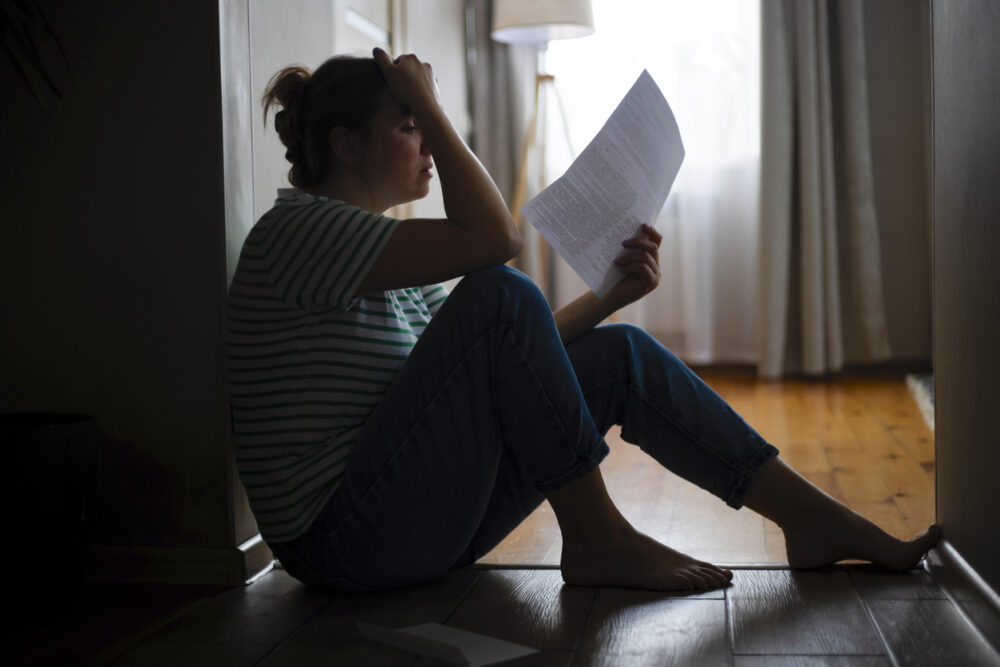
In extreme cases, hoarding can lead to violations of housing codes, fire safety regulations, or even result in eviction. If you’re renting, landlords can step in and issue warnings or notices. If you own the home, the city may issue fines or orders to clean up. Neighbors may file complaints, and if there are children involved, child protective services can get called in.
These legal consequences affect everyone living in the home, not just the hoarder. Suddenly, your private family issue becomes a public crisis. You may find yourself scrambling to meet cleanup deadlines or dealing with court appearances you never expected. Legal stress adds another layer to an already fragile situation. It’s not just about clutter anymore—it’s about serious consequences with long-term effects.
10. Adult children often pull away emotionally—or cut ties completely.

When hoarding becomes a lifelong issue, adult children can reach a breaking point. After years of trying to help, begging for change, or being met with defensiveness, they may feel forced to step back for their own mental health. Some stay involved but emotionally distant, while others cut ties altogether. It’s heartbreaking for everyone involved, but especially for children who grew up in that chaos and never really felt heard.
Walking away from a parent isn’t easy, but neither is living in a constant state of frustration and disappointment. The emotional cost of hoarding doesn’t always show up right away—but it builds as the years pass. And sometimes the most lasting consequence is a relationship that quietly dies because the mess took up all the space where love was supposed to grow.
11. Siblings often end up fighting over how to deal with it.

When one parent hoards, adult siblings are often left to figure out how to manage the situation—especially as that parent ages. What starts as a shared concern can quickly turn into heated arguments. One sibling might want to take action, while another says “just leave it alone.” Some try to step in and help, others walk away entirely. It can create deep rifts, especially if the hoarder plays favorites or resists outside help. Decisions about caregiving, finances, and even inheritance get tangled in the mess—literally and emotionally.
What should be a united front becomes fractured. Instead of pulling together, siblings pull apart, not just over the stuff, but over the pain and frustration it represents. The hoard may belong to one person, but the conflict it causes spreads fast.
12. Care becomes more complicated when the hoarder gets older or sick.
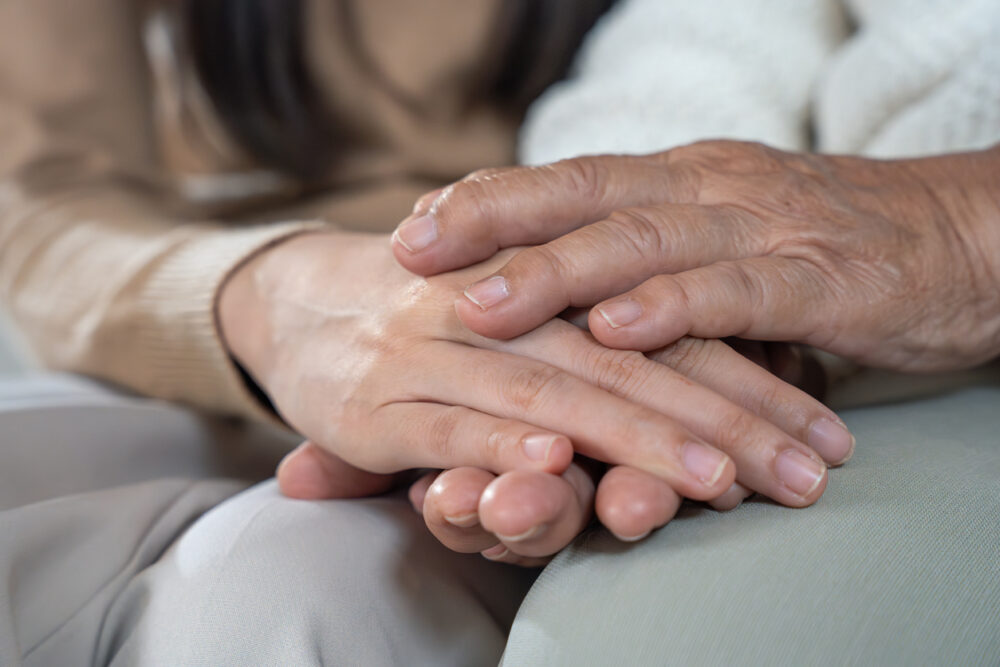
If the person who hoards becomes ill or needs in-home care, the situation can spiral quickly. Caregivers may refuse to work in an unsafe or unsanitary environment. Medical equipment might not fit, and emergency responders can be delayed by blocked hallways or cluttered entryways. Even basic tasks—like bathing, cooking, or giving medication—become challenges.
The burden then falls on family members, who may already be emotionally drained. Trying to clean up in a crisis is overwhelming, especially if the person still refuses to let go. Instead of focusing on health and comfort, you’re battling piles of belongings, unresolved emotions, and time. What could’ve been managed earlier becomes a logistical and emotional emergency. Care shouldn’t be this hard—but when hoarding is involved, everything gets harder.
13. Grief gets complicated when the hoarder passes away.
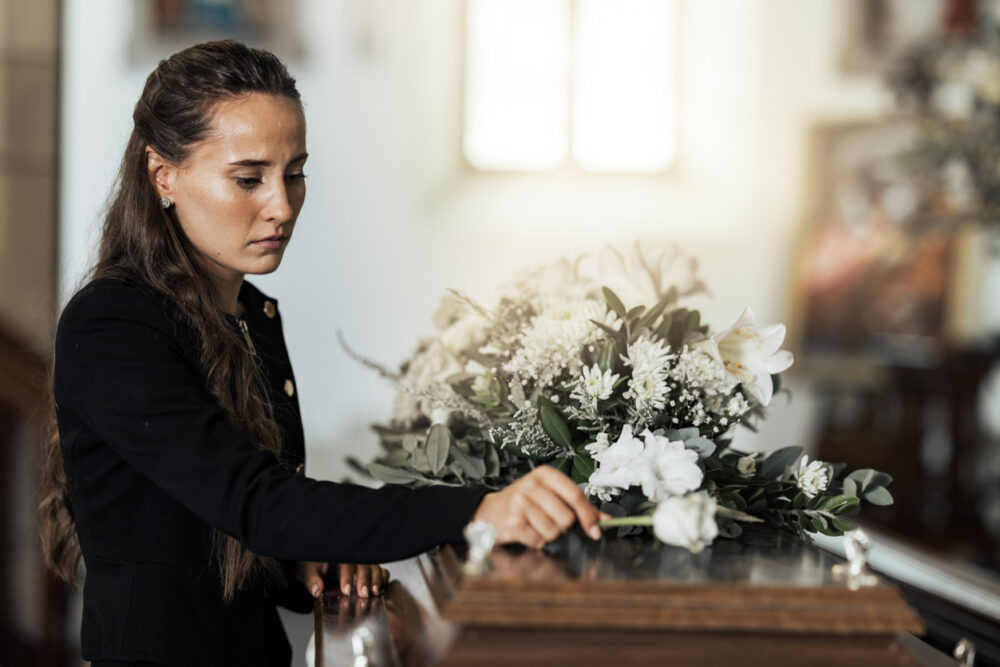
Losing a loved one is hard enough—but when that person leaves behind a hoarded home, the grief comes with layers. Instead of focusing on healing, family members are left sorting through decades of clutter, guilt, and unresolved pain. Every item feels like a question: keep it, toss it, or wonder why it was kept at all. It can take weeks or months to go through everything, and often, it reopens old wounds.
Some families argue over what to do, while others just walk away, unable to face the mess. What should be a time of remembrance becomes a source of conflict and exhaustion. Hoarding doesn’t just impact life—it complicates death too. And for those left behind, the weight of it all can linger long after the house is finally cleared.
